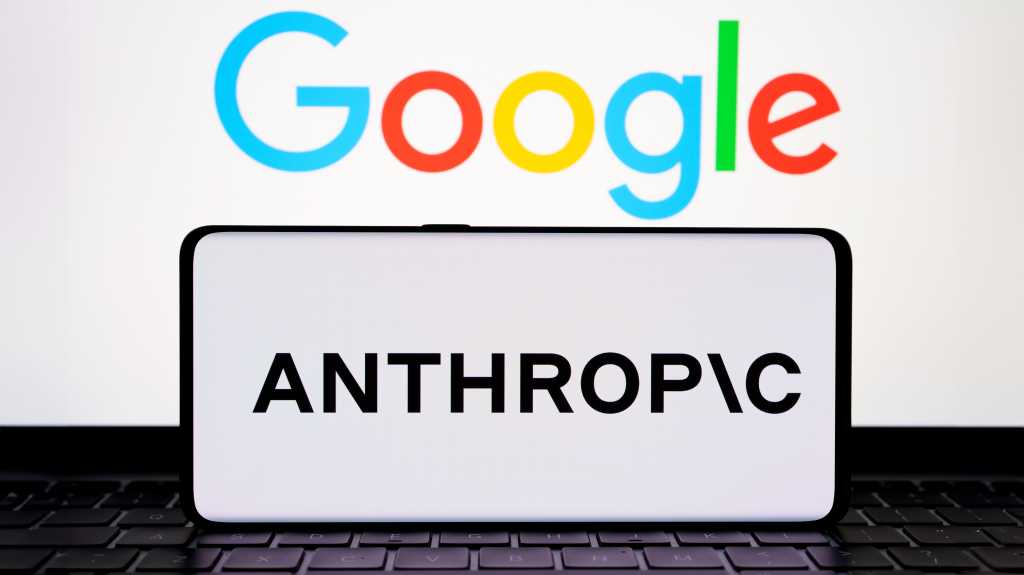Senators probe Google-Anthropic, Microsoft-OpenAI deals over antitrust concerns

Democratic Senators Elizabeth Warren and Ron Wyden have launched a formal inquiry into partnerships between tech giants Google and Microsoft, and AI startups, demanding detailed information about arrangements they fear may be circumventing antitrust scrutiny while consolidating power in the rapidly evolving AI market.
In identical letters sent to Google and Anthropic, as well as Microsoft and OpenAI, the lawmakers expressed concern that these corporate partnerships “discourage competition, circumvent our antitrust laws, and result in fewer choices and higher prices” for businesses and consumers using AI tools.
All four companies have been given until April 21 to respond to a series of pointed questions about their relationships.
The inquiry comes as enterprise customers increasingly depend on these AI systems, but may face limited options and higher costs if market consolidation continues unchecked.
Google, Anthropic, Microsoft, and OpenAI did not comment on the development.
“De facto mergers” without regulatory oversight
The senators’ letters specifically highlight Google’s 14% ownership stake in Anthropic after investing $3 billion, while seeking information from Microsoft regarding the “terms of its relationship” with OpenAI.
“These arrangements sometimes function as de facto mergers – allowing companies to consolidate talent, information, and resources – all while bypassing the scrutiny typically applied to mergers and acquisitions,” the senators wrote in their letters to both sets of companies.
The lawmakers cited a January 2025 Federal Trade Commission (FTC) report warning that such partnerships risk “locking in the market dominance of large incumbent technology firms.” They also referenced the FTC and Department of Justice’s merger guidelines, which note that even partial acquisitions may present “significant competitive concerns” by affecting firms’ incentives and strategies.
Computing resources as a competitive advantage
A major focus of the inquiry is how these partnerships potentially monopolize limited computing resources critical for AI development. The senators questioned whether Anthropic and OpenAI receive preferential access to Google’s and Microsoft’s computing capacity over other cloud customers, respectively, and asked for details on payment arrangements for these resources.
For enterprise customers, this could translate to an uneven playing field where only select AI providers have access to the necessary infrastructure to develop competitive models.
“Partnerships between CSPs and AI developers, if left unchecked, may accelerate consolidation of the AI sector, ultimately driving up prices and choking off innovation,” the letter stated.
The lawmakers also asked pointed questions about capital expenditures on AI infrastructure and how much has been recouped from profits earned by the AI partners, suggesting concern about cross-subsidization between the technology companies.
Talent consolidation and information sharing
Another key concern is the movement of talent and information between partner organizations. The senators asked both sets of companies whether individuals currently serve on boards or hold positions at both companies simultaneously, and about the flow of employees between the partner companies.
Enterprise buyers may face a market where fewer independent teams are developing competing AI solutions if the industry consolidates around these dominant partnerships.
The letter specifically referenced the FTC’s finding that some partnerships “embed engineers in one another’s companies, allowing for information transfer about technology and intellectual property” that enables “Big Tech to consolidate AI talent.”
High switching costs create lock-in
The senators expressed particular concern about how these partnerships may create technical and financial barriers that lock AI developers into specific cloud service providers (CSPs).
“Exclusivity contracts might restrict an AI developer whose needs evolve to be better suited to another CSP or who might benefit from a multicloud solution,” the letter stated, noting that “hefty egress fees can raise the cost of switching to a new CSP.”
The development of specialized AI semiconductor chips further raises these barriers. The senators noted Anthropic’s use of Google’s proprietary Tensor Processing Units (TPUs) for model training, while similarly questioning Microsoft’s development of the Maia 100 AI chip that incorporates OpenAI’s technology.
For enterprise customers, these interlocking technical dependencies could ultimately mean fewer options and higher costs if competition diminishes.
Acquisition potential raises additional concerns
The senators pointedly asked both Google and Microsoft whether they currently have plans to acquire their AI partners, if acquisition discussions have occurred, and if the AI companies would be amenable to such deals.
This follows the FTC report noting that respondents indicated that “acquisition of the AI developer by its CSP partner was a possibility.”
Complete acquisitions would represent the ultimate consolidation of these partnerships, potentially removing any remaining independence between the companies.
Broader implications for enterprise AI strategy
The congressional inquiry highlights mounting regulatory concern about AI market concentration just as enterprise adoption reaches critical mass. Companies developing AI strategies should consider the potential impact of regulatory action on their chosen AI providers.
If lawmakers determine these partnerships violate antitrust laws, enterprises could face disruption to their AI supply chains. Conversely, stronger antitrust enforcement could potentially create more competitive pricing and innovation in the AI market long-term. The senators’ letters reflect growing concern about AI consolidation, which they note “has received attention from bipartisan groups in Congress, federal antitrust agencies, and enforcers in allied nations like the UK and European Union.”







